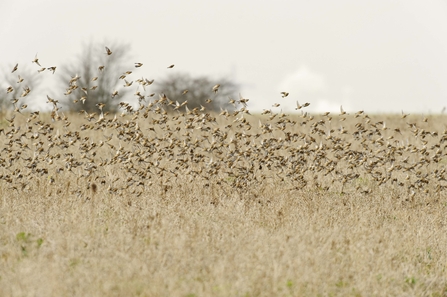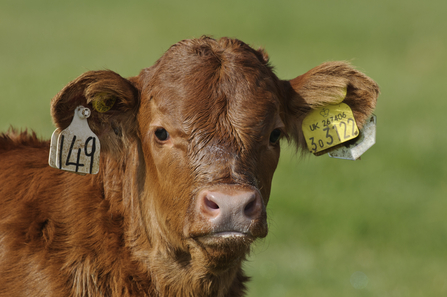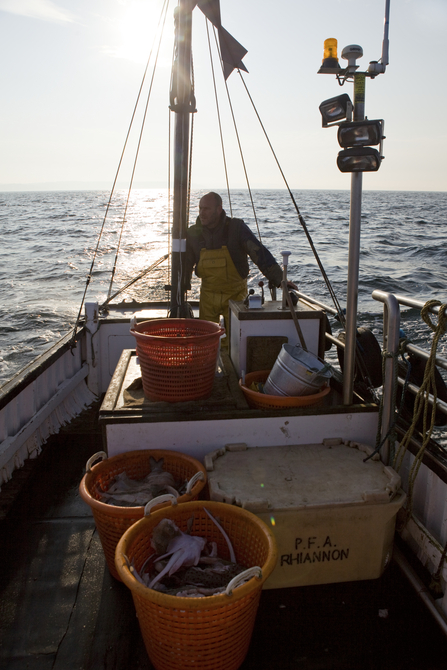
©Terry Whittaker/2020VISION

©Terry Whittaker/2020VISION
Although wildlife may ignore international boundaries, it is not immune from the effects of political decision-making. Far from it. The consequences of contrasting national policies are immense, not just for migratory species that move between countries and continents, but for the long-term future of the entire global wildlife treasure chest: the natural resources that provide us with food, medicines, clean water and places to enjoy and from which we draw comfort and inspiration.
Following our withdrawal from the European Union, policy on fisheries, land management, water and air quality and wildlife protection will pass to UK law-makers. How we choose to deal with these will be crucial to the future of our land and seas and the wildlife that lives on and in it. With our impending exit, the UK Government can change the fabric of our environmental and farming regulations for better or for worse. We could choose to strengthen our wildlife and environmental law, and improve on the legacy of thirty years of environmental legislation from the EU. The choice is now ours.
Although wildlife may ignore international boundaries, it is not immune from the effects of political decision-making
We could, for example, support agriculture differently, The Common Agricultural Policy will no longer apply. Farmland management is crucial to addressing many of the environmental problems and wildlife declines that we have seen over the last fifty years. How might we use this to ensure our land is farmed in the right way. That is in exchange for public investment, how do we get a better future for wildlife, soils and water?
We could seek to manage our seas sustainably. One of the more obvious `international` elements of EU policy can be seen through its impact on fisheries. Wild fish stocks truly know no political boundaries. Unsustainable fisheries were long a feature of how we managed our seas but under a revised Common Fisheries Policy, recent trends in European marine fisheries have been more positive. In 2005 over 90% of stocks were overexploited whereas now this is about 48%. Not perfect, but progress. Such progress must not be lost. Many fish stocks that the UK fleet exploit are shared with other nations and it is vital as the UK leaves the EU that we ensure these resources continue to be managed jointly and sustainably with European neighbours.

Terry Whittaker/2020VISION
The new situation is characterised as the UK in or out of the EU and its trading regimes, but this is too simplistic. We have our own internal country borders to consider. The Brexit vote revealed significant differences in public opinion. Scotland and Northern Ireland voted to remain in the EU (as did parts of England). We already have different approaches to environment and conservation in the four countries. Much UK policy is already devolved and subject to individual country decision making. Agriculture is guided by local condition and practice. Strong brand identity based on high quality and cultural image define Welsh, Irish and Scottish products in particular and form part of the drive for a healthy and high quality of farm management and food output. If standards and payment systems change on different sides of our borders or if international trade in farmed produce brings in a flood of cheap imports how will that affect food quality standards, environmental quality and wildlife across the UK? Will we see a race to the environmental bottom as we deregulate and reduce costs and quality? If so, this could destabilise the strong base in the remainder of the EU.
Flexibility is key to ensuring that policy reflects local conditions which vary markedly across the UK. The issues and priorities in each country are different. This is politically sensitive in NI and Scotland given they voted to remain in the EU. And in Wales, environmentalists worry that the wrong approach could undermine recent progressive legislation to improve the environment for people and wildlife, not least through the Welsh Future Generations Act. Such measures should not be undermined by ill thought out UK wide policies that fail to reflect both local nuance or national aspiration to lead on the world environment stage.
Flexibility is key to ensuring that policy reflects local conditions which vary markedly across the UK.
But those seeking such flexibility and ongoing devolution for our constituent countries face a new dilemma. Currently the funds that support agriculture and much of our countryside management come from the EU via Whitehall. Devolution of future agriculture budgets bring its own problems as farming subsidy battles with local priorities for education, health or transport and risk significant reduction in available funds. A system that provides UK derived funding and consistency with local operational variation may be the political answer to a difficult question as to how to ensure a viable and vibrant future for our countryside.
One way of overcoming the risk of fragmentation is the adoption of a UK common framework for key areas of environmental management such as fisheries and air quality, where a set of common standards could be applied harmonising approach across our four countries. Within the Wildlife Trusts we are sharing information and thinking between Wildlife Trusts in Wales, Scotland, Northern Ireland and England to ensure that we are operating in a joined-up way that works for wildlife across the UK but with a local flavour.
Through the Government’s commitment to produce 25 year plans for agriculture and environment there is some promise of strategy and action, although it is unclear whether these plans will function at a UK or England-only level. Providing a UK framework underpinned by country versions reflecting national culture and condition would be a sensitive way to deliver on the Conservative party election pledge that their aim is to leave the environment in a better condition to that which this generation inherited.

Toby Roxburgh/2020VISION
There are challenges ahead. We need to build upon the different approaches to land use and fisheries management across domestic UK borders. There is an opportunity to develop environmental policy and payments that are sensitive to local circumstances but that also reflect the huge public benefits that accrue as a result of sensible land management that help us with climate change, flood management and health. This means payments and investment of the public purse in real environmental outputs. There is also an opportunity to update environmental policy in the light of new science more rapidly than we can under EU jurisdiction, although this relies on the will of government to do so, and of course on sustained investment in science.
The key thing is that the countryside, towns and seas of these islands are managed properly, irrespective of where decisions end up being made. There is strong public support for wildlife and we need to turn this into an expectation that nature's recovery will be part of the foundations of a new UK. Leaving the EU need not mean leaving devolution behind, and must not mean lowering environmental standards or reduced flexibility. At a turning point for the UK let's create a positive turning point for wildlife.